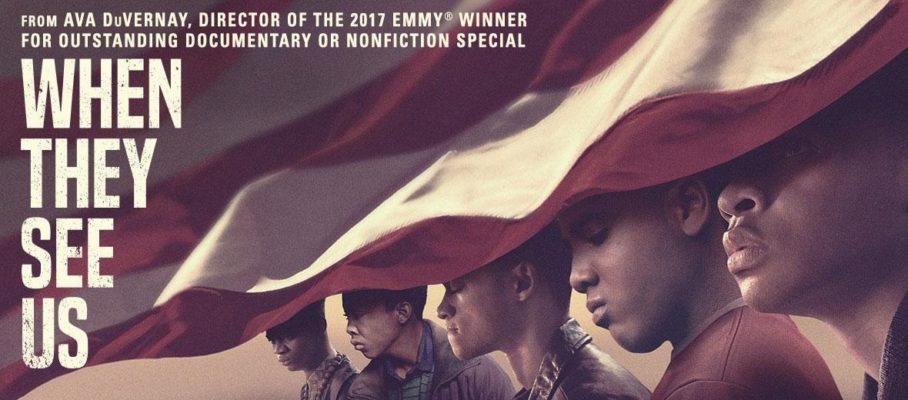Book 4: When They See Us (Documentary)
July 27, 6-8 p.m.

View our recorded Zoom discussion from July 27.
For Discussion:
Episode 2 Discussion Guide
1. In Episode 2, Kevin, Raymond, and Antron were held in a juvenile detention facility and Korey, the only 16 year old was held in an adult jail. Why was 16 thought to be an appropriate age to assign criminal responsibility? Should youth under eighteen be held in adult facilities during their trial?
2. Antron and Yusef were able to post bail and stay in their homes during their trial while the other boys remained in jail. What does this say about the people we allow to be free versus those we keep imprisoned?
3. How should prosecutor Linda Fairstein have balanced seeking justice for the victim with holding someone accountable? Were her actions appropriate?
4. Several times, prosecutor Elizabeth Lederer expressed concern with the reliability and quality of the boys’ testimony and evidence. How should she have properly addressed those concerns?
5. How did this series impact your thinking on the power of prosecutors and law enforcement?
6. How did this series impact your perspective on the role of the media in cases involving youth under 18?
7. How should the media balance communicating relevant news to the public with printing identifiable information on youth who have not been convicted?
8. How did race impact how the boys were treated by the prosecutors, police, and media?
Episode 3 Discussion Guide
9. In Episode 3, Yusef’s mother mentions that a 10 minute phone call with her son costs $22. Should youth and families have to pay for phone calls?
10. Upon release, the episode shows Kevin and Raymond registering as sex offenders and being informed that they must register every ninety days or risk being re-incarcerated. Should youth be required to register as a sex offender for the rest of their lives? How does this help or hinder rehabilitation and reintegration into society?
11. What was the impact of Kevin, Ray, Yusef, Korey, and Antron’s incarceration on their families?
12. Re-entry can be difficult for individuals leaving incarceration due to a number of barriers related to having a felony conviction. What barriers did Kevin, Ray, Yusef, Korey, and Antron face upon release?
Episode 4 Discussion Guide
13. Should any youth under the age of 18 be prosecuted as an adult? If yes, is it ever appropriate for that prosecution to be automatic or for a prosecutor to be the sole decision maker for whether the youth is prosecuted as an adult?
14. Should youth under eighteen who have been convicted as adults be held in an adult prisons? Why or why not?
15. At one point, Korey is held over 350 miles from his family’s home in Harlem. Should youth or adults ever be held that far from their families? Are there more appropriate options?
16. Should solitary confinement exist in prisons? As a punishment? For protection? Do you think there are other differences between an adult prison and youth prison? What do you think they are?
17. Korey spent 16 years incarcerated, when his co-defendants did 4-5 years. What do you think about subjecting youth to decades in prison? What, if anything, does society owe to individuals who are proven to have been wrongfully convicted and incarcerated?


